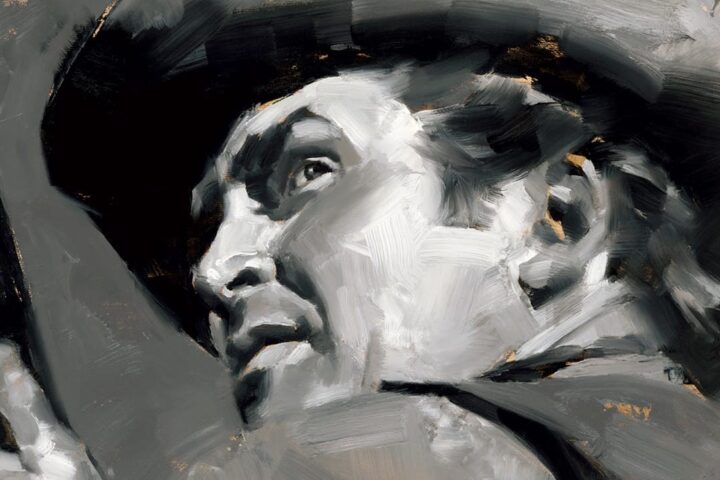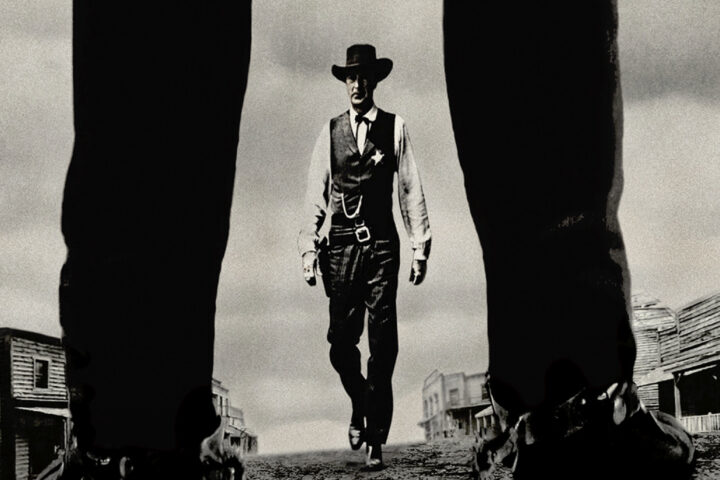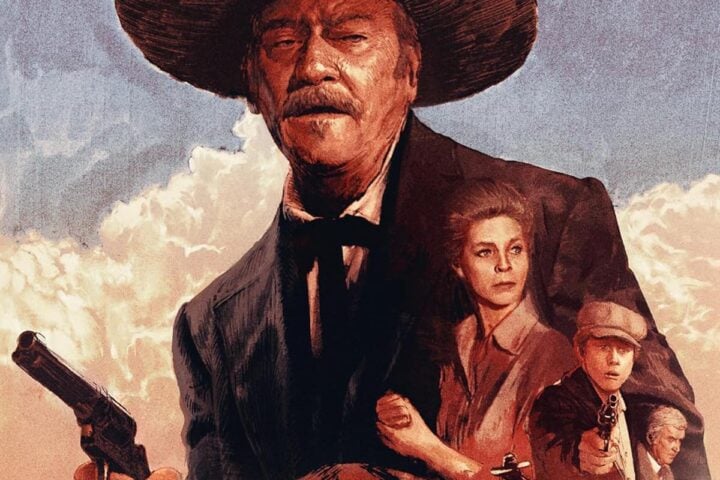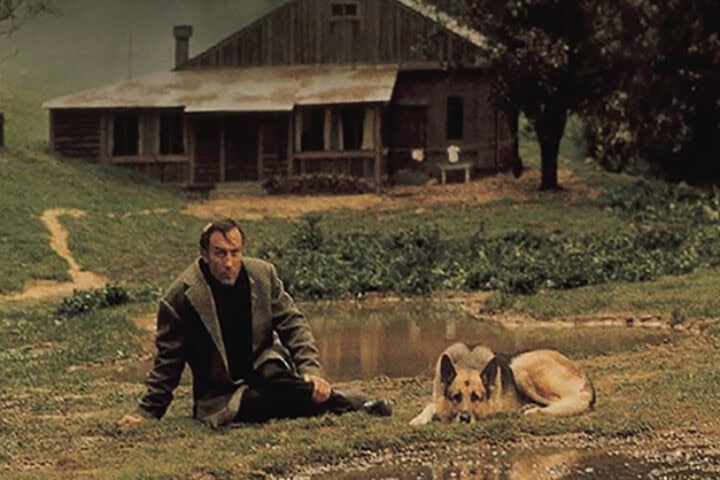Less bleak than Anthony Mann’s westerns with James Stewart, including Winchester ’73 and Bend of the River, The Tin Star still wastes little time sketching an unwelcoming vision of the Old West. It begins with bounty hunter Morgan Hickman (Henry Fonda) riding into a small town with his latest deceased prize in tow. The townspeople gather around him in the street like pigeons, though the open hostility and disapproval in their faces undermines the sense that they’re in any way titillated by the sight of a dead body or a grizzled gunslinger. Forced to wait for the paperwork to clear for his payout, Morgan settles in for a few days of frosty reception that the townsfolk extend to any outsider, including those within their community who violate the narrow-minded boundaries of accepted behavior.
Perhaps inevitably, Morgan becomes briefly attached to Nora (Betsy Palmer), a local woman ostracized to the outskirts for having a mixed-raced child (Michel Ray) with a Native American partner. Morgan also finds an unlikely companion in the town’s young, greenhorn sheriff, Ben Owens (Anthony Perkins), a timid sort who attempts to resolve conflicts through nonviolent means but also asks the bounty hunter to teach him how to shoot and how to project a tougher image to the sort of hardened frontiersmen who treat him as a child.
Fonda and Perkins lend complex shades to their characters. Fonda, well into middle age and showing off a receded hairline and slacker facial features than he did even a decade earlier in films like John Ford’s classic My Darling Clementine, brings a weariness to Morgan that can be felt in the man’s unsentimental view of navigating the harsh terrain of the Old West. Morgan takes no pleasure in his profession, but the no-nonsense way in which he instructs Ben in the finer points of gunslinging hint at a past riddled with bodies.
For Ben’s part, Perkins presents an initial image of something of an ideal public servant, seeking peaceful resolution over violence. Soon, however, his skittish energy and sullen, bitter muttering give away that Ben wishes he felt the confidence to settle matters with strength. It’s a remarkably modern performance, one as indicative of the barely restrained violent urges of a certain kind of soft-spoken, shrinking young man as Perkins’s later work in Psycho. Tacitly, Ben makes it clear that he refuses to give up the job as sheriff not because he believes in justice but because it’s the only path he can see toward masculine self-actualization and empowerment.
The film is, in part, a philosophical rumination on the men’s growing bond. “I only want to be good enough to keep this badge,” Ben says at one point of what he hopes to learn from Morgan. “Then study men,” the bounty hunter replies, sounding more like a monk in a Hong Kong kung-fu movie than the sand-blasted old salt of a traditional oater. Sensing Ben’s roiling insecurity, Morgan attempts to make him more confident without creating a monster, even divulging his own past as a sheriff as a warning about going down the wrong path. The script also makes ample room to explore the various threads introduced at the start, such as Morgan commenting on the greed and selfishness of the kinds of businessmen and bankers who discourteously “welcome” him to town at the start, or the forthright discussions between the hero and Nora about the difficulty people have overcoming the racism they are taught from birth.
Such ruminative longueurs are kept tight by propulsive editing and and stark compositions, which place these conversations against spare landscapes that deepen the sense of existential emptiness felt by the characters. The violence, when it finally comes, arrives as a jolting surprise from more cerebral concerns, and the shock is so abrupt that it shakes the townspeople out of their ostensible moral superiority and right into a mob frenzy that lays bare their hypocrisy.
There’s no sense of catharsis in Morgan and Ben’s response to both the criminals and the civilians, and, tellingly, the last word doesn’t belong to a newly emboldened Ben. Instead, it’s given to his fiancée, Millie (Mary Webster), who spent the entire film up to this point begging him to give up his job. At last, she resigns herself to Ben’s convictions, albeit with a fatalistic admission that she will live in fear of the day when Ben attempts to subdue the wrong person.
Image/Sound
Barring a few slightly washed-out exterior shots, the image is consistently sharp (Arrow’s disc makes no mention of the release being sourced from a restoration), with stable contrast between bright whites and inky blacks, while close-ups reveal subtle textures on faces and costumes. The disc comes with the original mono soundtrack, a stereo mix, and a new 5.1 surround mix. The first two are well-balanced, but the surround track does reveal too much separation between dialogue and sound effects, with Elmer Bernstein’s score taking up most of the extra sonic space.
Extras
Film historian Toby Roan offers a commentary track that’s rich in observations about Anthony Mann’s unpretentious artistry, as well as biographical details about the cast and crew. Critic Neil Sinyard contributes a discussion of the film, calling attention to the lean structure and clarity of characters and themes of the screenplay. An interview with Peter Bernstein, son of composer Elmer Bernstein, combines his personal memories of his father with a discussion of the older Bernstein’s career and influence. A booklet essay by critic Barry Forshaw comprehensively deconstructs the film from every angle, from Mann’s direction to the actors’ performances.
Overall
Anthony Mann’s somber western receives an excellent home video release from Arrow Video.
Since 2001, we've brought you uncompromising, candid takes on the world of film, music, television, video games, theater, and more. Independently owned and operated publications like Slant have been hit hard in recent years, but we’re committed to keeping our content free and accessible—meaning no paywalls or fees.
If you like what we do, please consider subscribing to our Patreon or making a donation.




